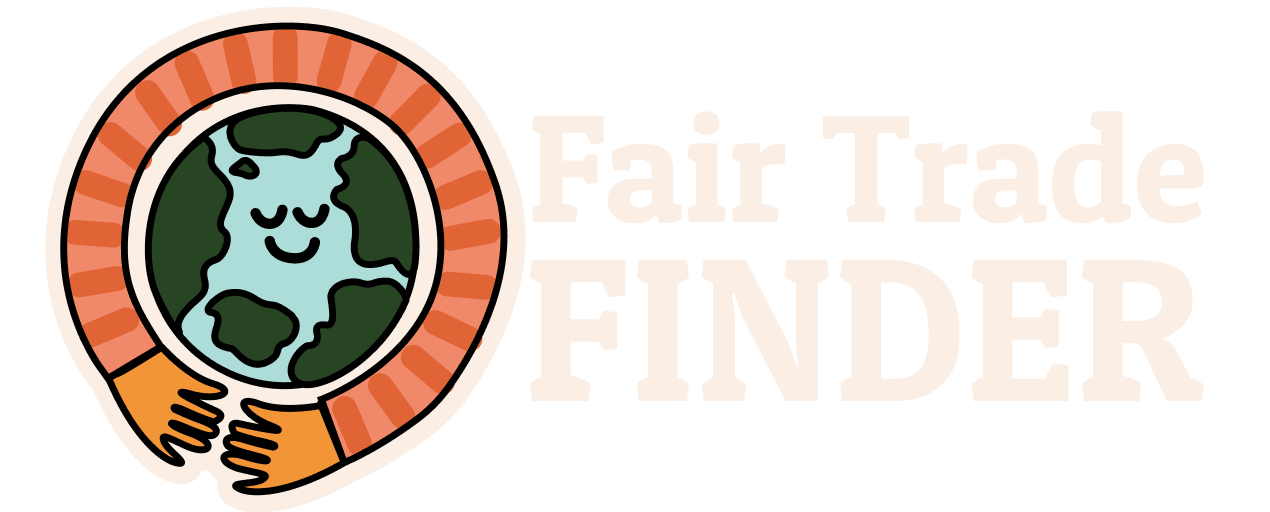
Fair Trade is framework created to develop a new economic trade system. It is a way to improve the lives of the people who produce the goods we enjoy through the support of fair and equitable trade practices.
Fair Trade businesses produce their goods according to specific regulations and requirements that uphold worker’s rights and environmental sustainability.
Farmers and employees benefit from Fair Trade because the system ensures the protection of human rights, the abolition of slavery and child labor, safe working conditions, and livable wages for workers and producers. Shoppers benefit from high-quality, ethically sourced goods as a result.
Choosing Fair Trade means uniting with farmers for equality and justice in the face of inequitable global issues. It also includes investing in climate-friendly farming practices and empowering women as leaders.
What are popular fair trade businesses?
Fair Trade is most often seen in industries like coffee production, flowers, bananas and organic cotton, to name a few examples. Check out our articles on how living wage policies affect workers and the environment, 10+ ethical fair trade companies, fair trade shoe brands and ethical underwear to learn more about fair trade businesses.

How was Fair Trade created?
The Fair Trade system began with coffee and now includes chocolate, fruit, cotton, flowers, tea, and other items.
From the late 1980s until the mid-1990s, Europe, the US, Canada, and Japan all had national Fair Trade efforts.
In 1997, 17 national projects merged to become the Fair Trade Organization (FLO).
FLO, established in Bonn, Germany, has swiftly grown to be the largest of its type. In addition to Germany and the United States, FLO maintains offices in China. It was created in 2002 to increase customer awareness.
The Fairtrade Labeling Organizations (now Fairtrade International, FI), International Fair Trade Association (now World Fair Trade Organization, WFTO), Network of European Worldshops (NEWS!) and European Fair Trade Association (EFTA) formed the FINE workgroup, which officially defined Fair Trade as:
“a trading partnership, based on dialogue, transparency, and respect, that seeks greater equity in international trade. It contributes to sustainable development by offering better trading conditions to, and securing the rights of, disadvantaged producers and workers—especially in the South. (FINE 1998)“
What are the requirements for being a fair trade business?
Fair Trade Certified products must be created by farmers, cooperatives, or employee groups that meet Fair Trade labeling requirements.
Requirements for a business or product to be Fair Trade certified are:
- Workers are paid a livable wage so they can meet basic needs such a food, housing and healthcare.
- Safe workplaces and factories.
- Prohibit slave and child labor.
- Prohibit sexual assault or intimidation.
- Conserve natural resources and protect the environment.
- Invest funds in projects that help workers and their communities.
- Provide transparency to consumers about the entire supply chain, including suppliers, manufacturing, and distribution processes.
What is a fair trade certification?
Fair Trade certified businesses are required to meet international standards maintained by oversight committees that report to an international Fair Trade regulatory board.
Fair Trade certifications are developed in a system that is open, independent, and globally consistent. FLOCERT is the largest Fair Trade certification organization. The organization certifies a wide network of producers and most of the products that people buy.
Fair Trade auditors are sent by the certification authority to review businesses applying for certification. Auditors are usually based in the countries and regions where they work, and they are knowledgeable about the cultures, languages, and legal systems in the places where they work.
Fair Trade auditors are also regularly tested and required to undergo yearly training. Fair Trade certifiers are required to ensure that auditors are completely impartial. Auditors’ fees are also paid by the certifier, and auditor reports are documented and archived so that the process is publicly available.
A multi-year certification cycle begins after a successful certification. From then on, the company is subject to periodic audits, some of which are unannounced and can occur at any time.
At the end of the certification period a renewal audit is performed. If the renewal audit is successful, a new certificate is issued, and the multi-year certification cycle restarts.




